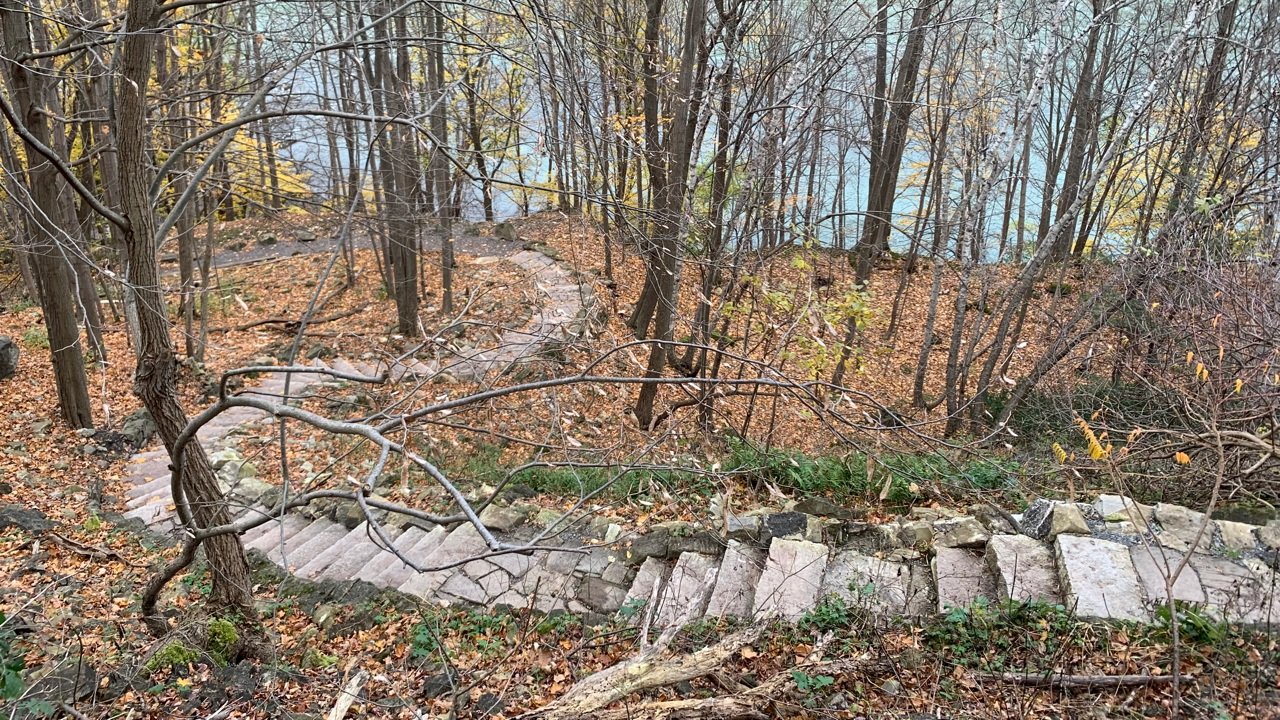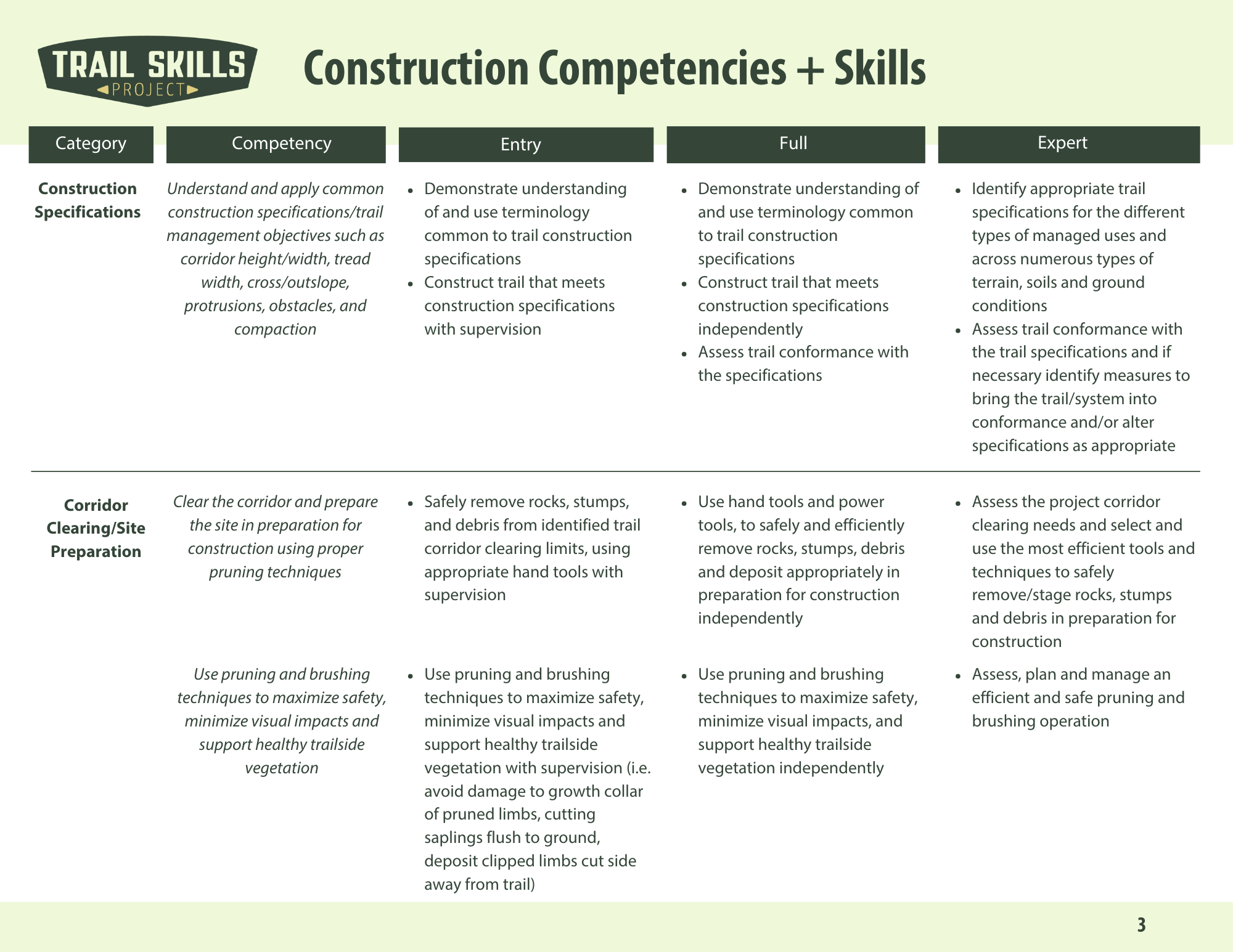
Photo: Town 4 Trail Services and Tahawus Trails
The Trail Skills Project serves as the workforce hub for the trails community providing connections to trails education, trail expertise, professional development, and job opportunities. PTBA has been a leading partner in the Trail Skills Project since its inception in 2021.
On the Trail Skills Project, individuals can:
Create a profile, designed to be a 'linked in' style snapshot focused on trail experience and aligned with the competencies.
Identify trail professional development goals through the competency self-assessment
Find training opportunities to meet those goals
Find and post job opportunities
Connect to trail-related organizations, companies, and agencies
In 2024, the Trail Competency Framework was updated with new competencies and defined skills (entry, full, expert) associated with each competency. You can view the details online or download the pdf below.
2024 Update to the Trail Competencies
Trail Technician 1 Test is Live
The Trail Technician multiple-choice exam evaluates foundational knowledge in trail development, aligned with the progression from entry-level to full Trail Competency standards.
NorthWest Arkansas Community College (NWACC), with its certification partner NOCTI, engaged with trail industry leaders - including members of the PTBA - to develop this standardized exam. The assessment was successfully beta-tested both during our 2024 conference and through online platforms, and is now officially available.
Trail Skills Project Goals
Promote workforce development of current and future trail professionals
Advance trails training opportunities and development
Provide increased opportunities to connect trail volunteers, stewards, agency staff, and professionals
Define a pathway to a career in trails and inspire the next generation of trail professionals
Bolster the capacity of volunteers to meet stewardship needs
Photo: Progressive Trail Design
Trail Competencies
Competencies are a key strategy as PTBA works to professionalize our industry, define career pathways, inform and align trail education programs, and ultimately build our workforce.
The competencies are the foundation of the Trail Skills Project (profiles, job descriptions, training alignment) and can also be used for program and curriculum development (universities, community colleges, non formal education), workforce development efforts (apprenticeships, training, recruitment), and bolstering trail stewardship capacity (training and trail project identification).
The updated competency framework builds on the 2021 version which was the result of a survey research project that defined the competencies. More than 200 trail experts nationwide representing 44 states and, on average, 19 years of trail work experience, participated in the 2021 Trail Competency Framework survey.
Sample page from the Construction Competencies
Trail Skills Project Webinars
PTBA, American Trails and Northwest Arkansas Community College presented a webinar on 10/17 to discuss the updated Trail Competencies and how they are being used for program and curriculum development, workforce development efforts, bolstering trail stewardship capacity, and professionalization of the trail industry.
The panel of speakers discussed the many ways that the Competency Framework has been used, or could be used, to create innovative higher education programs that build the next generation of trail professionals. Speakers shared strategies, successes and challenges that they faced in creating trail programs at their institutions and how they see the future of trail training programs playing out in the years to come.








